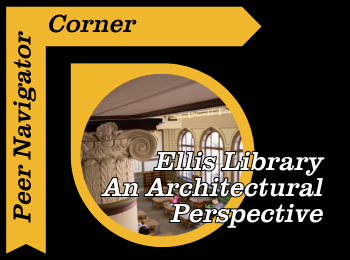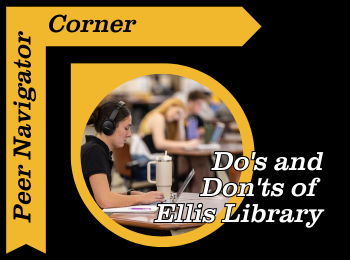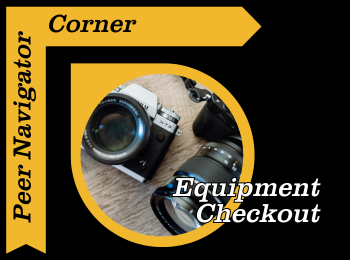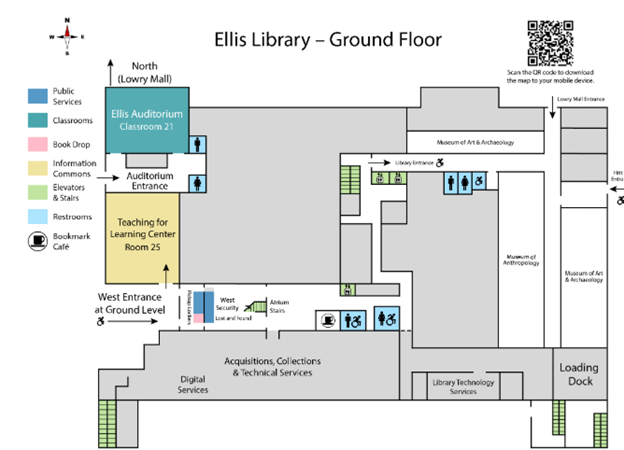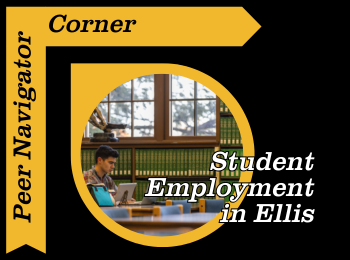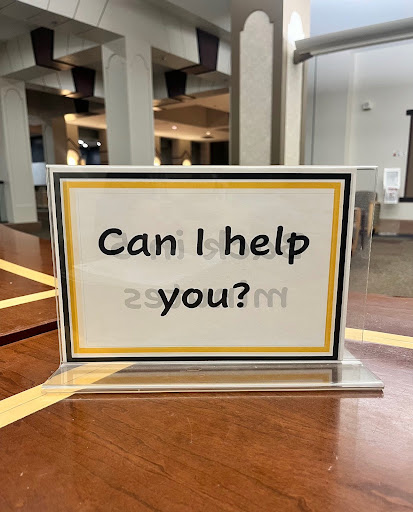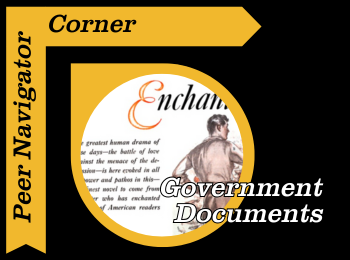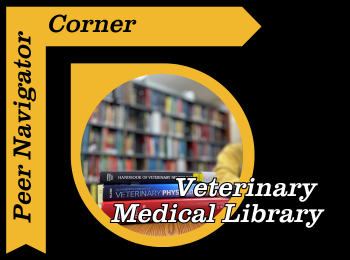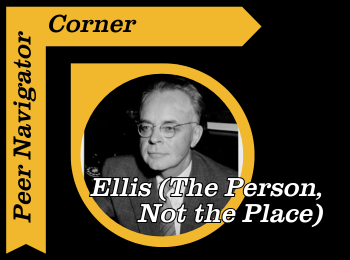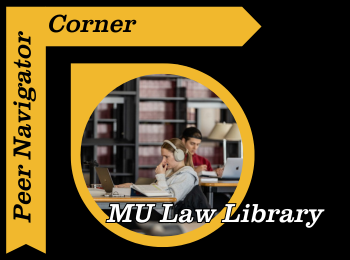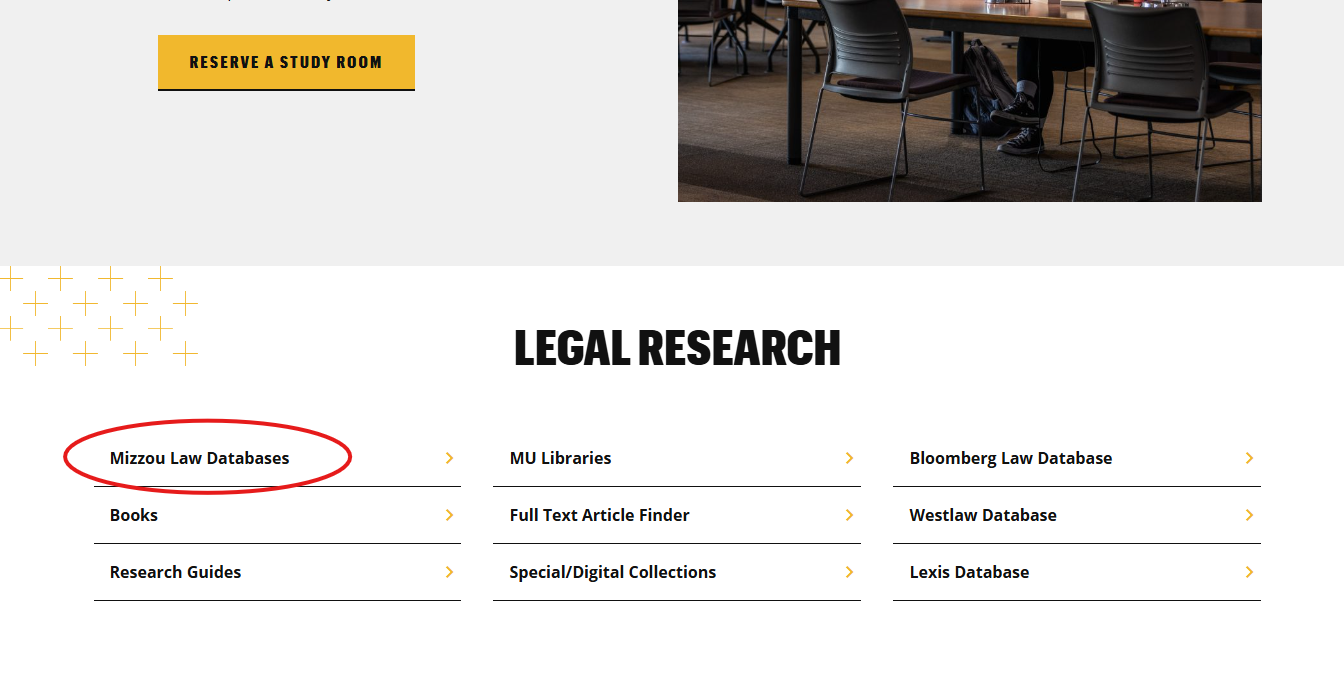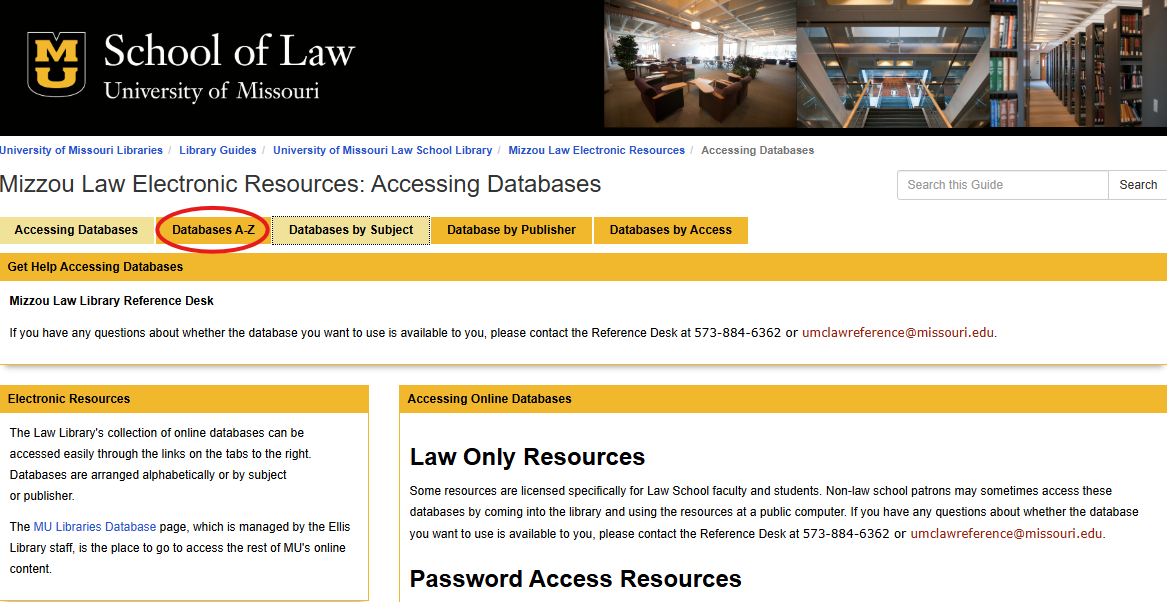Written by: Ahmad Bahir Sherzad
As an architecture student learning about the importance of how principles of architecture affect people’s mood in a space, I wanted to touch on it as a new peer navigator who has walked Ellis Library more times than I can count. In understanding architectural principles and elements, we can have a better understanding of the purpose of different sections of Ellis Library before visiting. In this post, I’ll share a closer look at two of Ellis Library’s most popular study spots – the ground-floor atrium study space and the General Reading Room (201) on the second floor – and how their unique architecture might shape your study experience.
The ground-floor study area near the atrium stairs was added after the original 1915 construction and is now open 24/5. The space consists of a coffee shop-style seating around a small student-run cafe under a structure of stairs that lead to the first floor. When it comes to stratification by the architects of Ellis, the floor consists of many different styled seating options on simple marbled square tiling. It is also crowded with various maps and pieces for spectator viewing on display in booths built into the wall. The head of the space features low-hanging lights and a variety of ceiling heights. Near the doors, the ceilings are raised all the way until the top of the first floor, while under the stairs, of course, they are much lower. The atrium goes from a naturally lit entrance to a cozy, somber, and dark area under the stairs and around the small cafe. All these characteristics create a sense of movement, productivity, and openness to the space.
Diving into the movement, transition, hierarchy, and heart of the ground-floor study space, one can see there is a heavy amount of transitional energy. The main entry is from two sets of large glass doors that lead from the Speakers Circle into Ellis Library. Almost mall-like, the doors are purposely designed to coordinate safety and transition of a vast number of students exiting and entering the library, with one being designated exclusively as an entrance and the other as an exit. Most people enter from glass doors near a large information desk facing into the space all the way towards the back of the study area, where the cafe can be found tucked into the corner. Movement is random in the cafe area, but follows a strict order closer to the desk and openings. The hierarchy of the space is mostly overpowered by the large stairs that lead to the second floor and encompass most of the body of the space. The small coffee tables and booths are given secondary focus, while two large bar-style tables serve as the primary focus when it comes to seating. The space is hectic and loud compared to every other space in Ellis; at no time will you ever hear a pen drop. The cafe in the corner does not pull much of the attention of the space, but rather the heart of the space is the wood and glass-adorned stairs that can be seen from every angle of the atrium. The height of the ceilings upon entrance and the vastness of the stars instantly draw students’ attention and guide them through the space.
The Main Reading Room, originally called the General Reading Room, in Ellis Library at Mizzou was created in 1915 when the library was constructed. The Main Reading Room of Ellis Library is a massive, long, rectangular space defined by two parallel walls. It is organized around a central axis split long ways down the rectangle with rows of brown library tables perpendicular to the walls. When it comes to the stratification of the long linear space, the floor of the Main Reading Room has brown rectangular tables in four long columns filling the vast space, and is surrounded by book-lined walls. The table and chairs are worn by university students over time. As for the body of the room, tall arched windows on the north wall fill the space with natural light, and subtle brown metal molding disguised as wood and white paint cover the vast size of the walls. This stratum creates a feeling of awe and openness in the space. The head of the Main Reading Room features a large, curved ceiling with raised wave motifs and hanging rectangular lights. The curved ceiling immediately creates a sense of awe in any user and adds vastly to the space, honoring its name as the “main” reading room of Ellis Library. The raised ceiling creates a sense of contrast to other spaces in the library. All these create a sense of order, calm, and academic focus.
When it comes to the qualitative aspect of the Grand Reading Room in Ellis Library, the natural light from multiple vast arched windows creates both mood and visibility for students in the space. They allow warm natural light to fill every part of the room, creating a sense of awe and beauty. The light white walls and wood details suggest tradition and purpose. It is a semi-enclosed space within the larger library structure, with three entrances that bring you into a space that is eerily silent compared to the rest of the library, which is quite ironic. The main focus is on the grand windows on one side that define the spatial “heart” of the space. In terms of movement, transition, hierarchy, and heart of the Main Reading Room, the main entry is from the south side between two white columns with a capital on top of both. There is minimal movement in the space due to the silent atmosphere in the room. The movement, or so-called transition, follows the axis, down rows of tables, looking for open seats. The movement at times is also random and hectic across different axes as people look for spaces to inhabit and study, not too close to anyone else. When it comes to the hierarchy of the reading room, the large study tables are the primary focus, and a couple of lounge chairs at the west end are secondary. The heart of the room and even Ellis Library itself are the large windows that draw the eye instantly, define the user’s mood, and set the tone.
Whether you are looking for a more traditional and silent study area or an energizing space, Ellis Library offers both in its intentional designs. To learn more about the history and architecture of Ellis Library, I would highly encourage you to visit the following website, full of archives of Ellis construction photos and of many other study spaces on campus.
